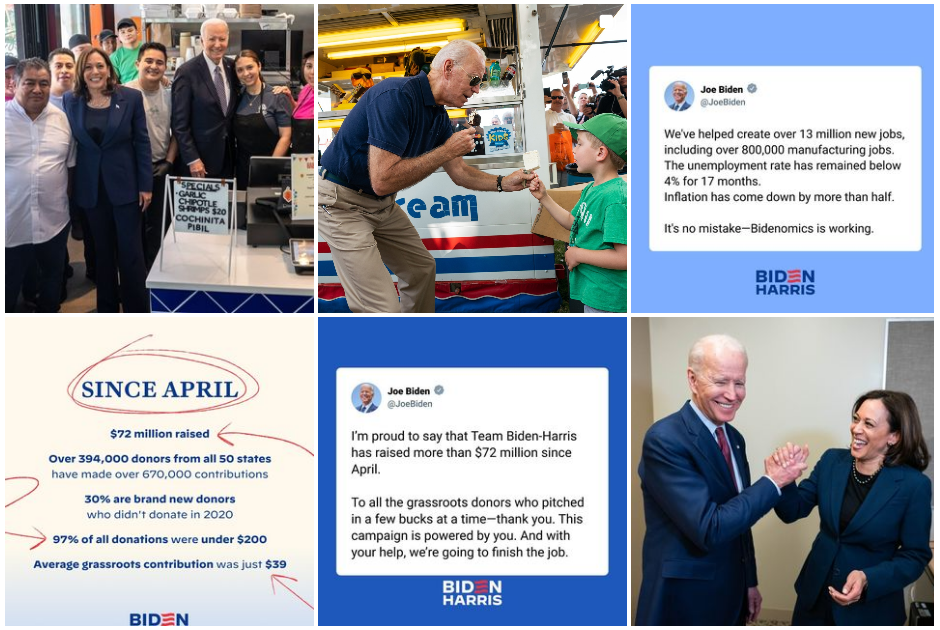

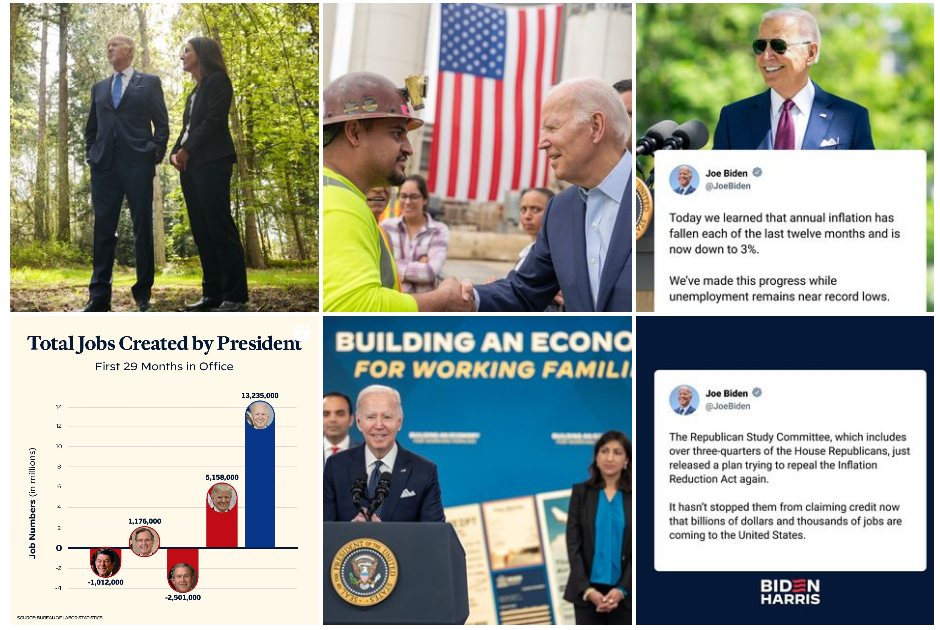
Humanitarian aid for Palestinians in northern Gaza is the lowest it's been in more than a year. People on the ground in Gaza share what, and who, could change the scale of civilian suffering.
President-elect Donald Trump has tapped Fox News host and military veteran Pete Hegseth as his nominee for Secretary of Defense. Who he is -- and what this pick could mean for the direction of America’s national security.
Donald Trump won North Carolina. But Democrats in the state swept every major executive branch race, including governor, and broke the Republican supermajority in the statehouse. What explains this split?
Millions of voters who turned out in 2020 didn't show up this year. Why they stayed home or left the top of the ticket blank -- and how we might reinvigorate Americans' belief in voting.
On Point news analyst Jack Beatty on why he thinks the humanitarian crisis in Gaza is an intellectual disgrace for the Biden administration.
Starr County, Texas is 97% Latino. For more than 130 years the County voted for Democrats. Until last week.
In fact, Starr County has been swinging right for the past 8 years, with a 75-point shift to Republicans since 2016. What's motivating Latino voters in Starr County to back Republicans over Democrats?
This month marks 20 years since the start of the bloodiest battle of the Iraq War.
Marines who were on the ground share their stories and the two-decade long struggle to heal.
The war in Ukraine. A trade battle with China. 'Mass deportations' to Mexico. How are Europe, Mexico and China preparing for Donald Trump’s return to the White House?
Voters across the country went for Donald Trump and other Republicans in big numbers -- and endorsed progressive measures like abortion access and an increased minimum wage in ballot initiatives. What this tells us about what voters really want.
Trump won the presidency, but down ballot votes didn't always follow party. How can we understand the conflicting and diverging values expressed in the 2024 election?
On Point news analyst Jack Beatty on the historic eras the U.S. could return to if Donald Trump’s various campaign policies are enacted.
Republicans dominated the election -- with Donald Trump taking back the White House, flipping the Senate and likely keeping control of the House. How the Republican Party did it, and the policies and priorities it will have in Congress and the White House.
Just seven swing states decided the fate of the 2024 U.S. Presidential Election. A roundtable conversation with journalists on the ground, right after Election Day.
A Wisconsin city became a political flashpoint in the national immigration debate. In On Point's latest collaboration with ProPublica: How Whitewater, Wisconsin has responded to a new wave of immigration.
Republicans have already filed more than 90 lawsuits challenging voting rules and practices – before a single ballot has been counted. What clues these lawsuits hold about a looming legal battle after Election Day.
According to a recent poll by the American Psychological Association, more than two out of three Americans say the upcoming presidential election is causing a significant amount of stress in their lives.
The consequences of election-related stress and what you can do to manage it.
On Point news analyst Jack Beatty on the political power of fantasy over reality and its role in Trumpian politics in the U.S.
This month, more than a dozen former Trump staffers went on the record to say that everyone should heed the warning that Donald Trump is a fascist and would rule as a dictator.
False claims and threats about the 2024 election are expected to get worse after Election Day. How are social media companies preparing?
The Federal Elections Commission has issued rules that make coordination between campaigns and big donors legal and more direct. How's that shaping the 2024 election? We explore the connection between billionaires and the campaigns they're influencing.
The Georgia Supreme Court has blocked the state's Republican-led election board from enforcing new election rules introduced just weeks before Election Day. We speak to Republican Janelle King, a board member who pushed for the rule changes.
2024 is set to be a record-breaking year for political advertising, with some $10.2 billion spent across the U.S. Most of those dollars are aimed at seven swing states. What do voters in those states see on their TVs and online — and what does that say about current political messaging?
The latest on special counsel Jack Smith’s case against former President Donald Trump and his attempt to overturn the 2020 presidential election.
On Point news analyst Jack Beatty on the influence of French historian and philosopher René Girard’s beliefs about the nature of human beings on our daily lives, social media, and JD Vance’s conversion to Catholicism.
Donald Trump has promised to deport millions of migrants if he's elected. He wants the largest mass deportation in U.S. history. How Trump plans to do that and its likely consequences.
Donald Trump claimed that newborns are sometimes “executed." That is not true. He’s talking about perinatal palliative care. We learn the facts about the care these grieving families receive and why it's sometimes needed.
Wisconsin is one of the states that will likely determine the 2024 election. On Point goes on the road to Milwaukee, Wisconsin to talk to the chair of the state election committee about the security and trustworthiness of the vote.
With Election Day quickly approaching, many voters are still wondering what a potential Kamala Harris presidency would look like -- and how it would differ from the Biden administration.
Some 53 U.S. Senators and representatives are leaving Congress this year. What’s driving this flood of retirements? What does it mean for the 2024 election and beyond?
On Point news analyst Jack Beatty outlines the details and potential consequences of Donald Trump’s plan for the mass deportation of more than ten million migrants currently in the U.S. should he be elected president again.
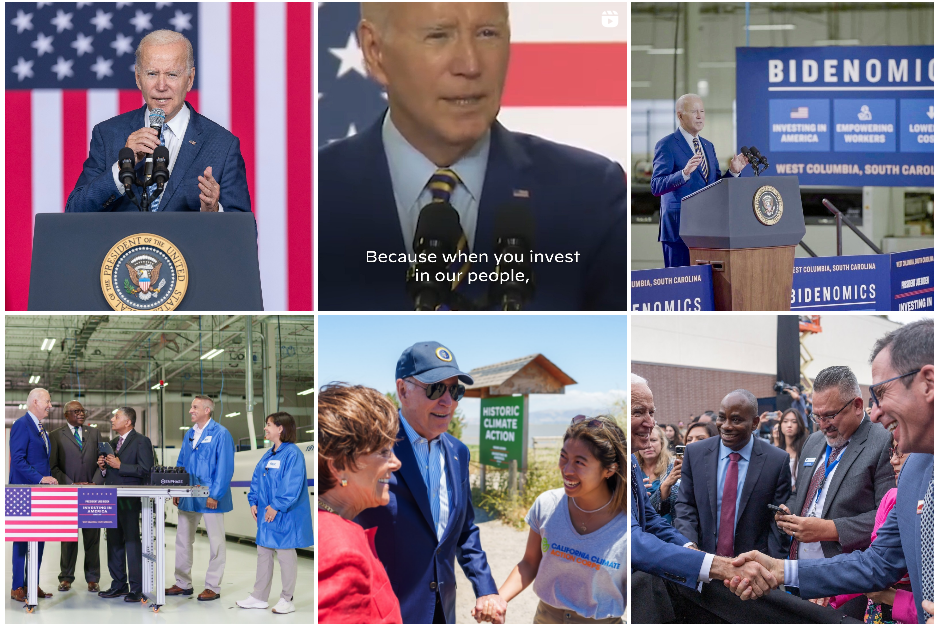
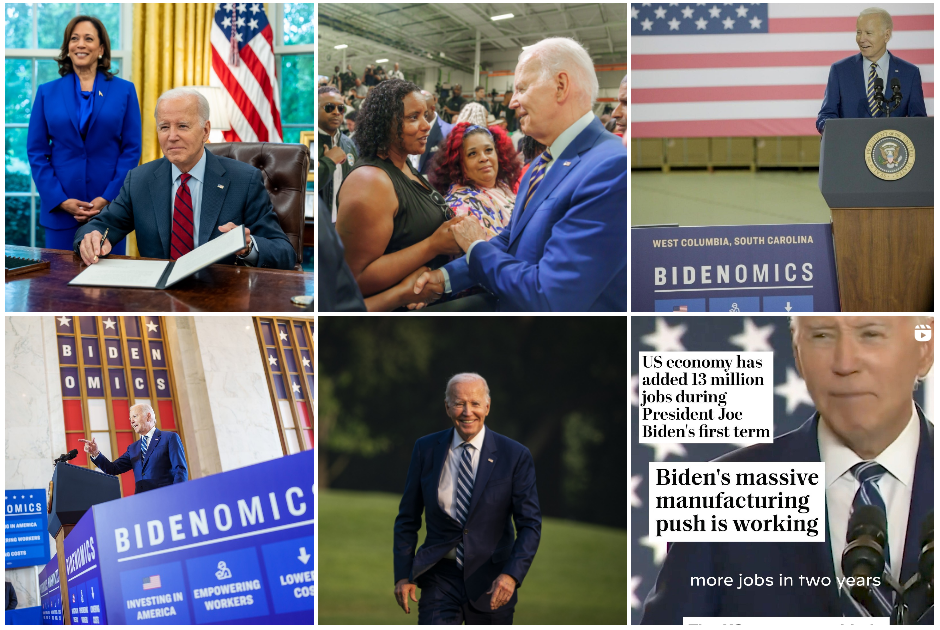
Disaster preparedness and recovery planning is designed to reduce the disruption of essential services when an emergency situation occurs. Emergency communications planning is key component of any disaster plan. Disaster plans should be flexible enough to be adapted to particular emergency situations.
The following guidelines are intended to help satellite carriers ensure their continuity of operations and manage the security and operability of their communications systems and networks during emergencies. You may voluntarily choose to use these guidelines to further develop, enhance and expand their current emergency and disaster preparedness, response and recovery plans to build in a more comprehensive strategic approach to their overall emergency communications plans.
In formulating your plans, the goal is to develop and implement strategies that ensure the continued operation of facilities before, during, and after an incident. Hence, the main steps are preparation, response, and recovery.
Assess communication systems in order to determine which systems and/or databases require redundancy.
Examine the vulnerability of each communications service provider's infrastructure and facilities and consider the use of alternate providers.
Have policies and protocols in place to ensure that all personnel have access to emergency notifications, via various communications devices.
Secure communications and IT systems/facilities from physical and cyber attacks.
Have plans in place that account for commercial power disruptions for extended times during and following an emergency. Actions to take:
Verify the availability of technician test equipment that may be needed when an emergency occurs. Also verify that test equipment works with both commercial and battery power when applicable.
Enter into mutual aid or lend-lease agreements with similar organizations inside and outside of your area. In some cases, these agreements will enable organizations to share specialized resources rather than duplicate them in every jurisdiction.
Activate the Emergency Response Process which includes procedures for impact assessments, repairs and implementation of alternate communications solutions. Entities should:
Activate the Emergency Recovery Process which includes procedures for conducting impact assessments, making repairs or restoration, establishing alternate solutions, performing post-incident analysis, and updating the emergency management plan.
Update the organization 's emergency management plan as necessary. Schedule post-incident follow-up meetings and drills to address any outstanding emergency preparedness, response and recovery issues within 60 days of the incident.
To ensure that your telephone call gets through to family, friends and loved-ones during an emergency or disaster, here are things to consider:
It is important for consumers to keep in mind that during an emergency, many more people are trying to use their wireless and wireline telephones at the same time when compared to normal calling activity. When more people try to call at the same time, the increased calling volume may create network congestion.
Visit Federal Emergency Management Agency's (FEMA) website for more information.
Under the FOIA and the FCC's implementing rules, you are allowed to obtain copies of FCC records unless the records contain information that is exempt under the FOIA from mandatory disclosure. Section 552(b) of the FOIA contains nine types of records which are routinely exempt from disclosure under the FOIA:
Even if a record falls within one of these FOIA exemptions, the FCC may, in some circumstances, release the records, depending upon the exemption at issue and the circumstances of the FOIA request.
Section 1.1214 of the Commission's Rules provides:
For further information about the ex parte rules, contact David.Senzel@fcc.gov or (202) 418-1720.
When are Ex Parte Presentations Allowed?
For the purposes of the Ex Parte rules, FCC proceedings are broken down into three categories:
1. "Exempt" proceedings, in which ex parte presentations may be made freely and do not require a subsequent notice;
2. "Permit-but-disclose" proceedings, in which ex parte presentations to Commission decision-making personnel are permissible but subject to certain disclosure requirements (i.e., a copy of written presentations and a summary of oral presentations must be filed in the record); and
3. "Restricted" proceedings, in which ex parte presentations to and from Commission decision-making personnel are generally prohibited (i.e., written materials must generally be served on all parties and all parties must have an opportunity to be present at oral presentations).
How Do I File a Notice of an Ex Parte Presentation in a Permit-but-Disclose Proceeding?
Copies of written presentations or summaries of oral presentations must generally be filed no later than two business days after the presentation, with copies of summaries to the Commissioners or Commission employees to whom the presentations were made. Presentations made the day a Sunshine notice is given must be filed the next business day, as must any allowable ex parte presentations during the Sunshine period. (See 47 C.F.R. § 1.1206(b).)
Copies and summaries should be filed electronically using the FCC's Electronic Comment Filing System (ECFS).
The summaries of oral presentations must list all persons present and describe the substance of the new data or arguments presented (or provide a citation to prior written filings containing the data or arguments) and not merely list the subjects discussed. Generally, more than a one or two sentence description is required. (See 47 C.F.R. § 1.1206(b)(2).)
The Enforcement Bureau's
Spectrum Enforcement Division,
in conjunction with the
Regional and Field Offices,
is responsible for
responding to interference complaints involving FCC licensees.
The Federal Communications Commission has the authority to inspect most
radio installations. Responsibility for conducting these inspections
generally rests with the Enforcement Bureau's Field Agents. In the
course of fulfilling this responsibility, the Agents often receive
questions concerning the authority and procedure under which they are
working. The Enforcement Bureau has assembled this general information
sheet to address some of the more commonly asked questions concerning
inspections and to clarify why and how inspections occur.
Section 303(n) of the Communications Act of 1934, as amended, (Act)
gives the Federal Communications Commission the "authority to inspect
all radio installations associated with stations required to be
licensed by any Act, or which the Commission by rule has authorized to
operate without a license under section 307(e)(1), or which are subject
to the provisions of any Act, treaty, or convention binding on the
United States . . ." 47 U.S.C. 303(n) Both Section 303(n) of the Act,
and the Rules which implement the Act, grant the right to inspect most
radio operations to the Commission, and by delegated authority to the
Commission's Bureaus and agents. The Enforcement Bureau conducts
inspections of radio installations as part of the Bureau's function to
"[e]nforce the Commission's Rules and Regulations." 47 CFR 0.111(a).
Both licensees and non-licensees must allow an FCC Agent to inspect
their radio equipment. Along with the privilege of possessing a license
come responsibilities such as knowing the applicable rules, including
allowing the station to be inspected. Licensees should be aware of the
Commission's right to inspect. Equally important, FCC Agents are
allowed to inspect the radio equipment of non-licensees. Non-licensees
include those individuals or entities operating in accordance with Part
15 of the Rules. Non-licensees also include those who should have a
license to operate their equipment but have not obtained a license and
are operating without authority.
Radio equipment is generally used in a commercial setting (e.g.,
commercial broadcast station, land mobile station, commercial delivery
service) or a residential setting (e.g., amateur, citizen's band (CB)
radio). Home-based businesses may also operate radio stations. This
fact sheet addresses inspection of radio stations in both the
commercial and residential settings.
Q: Why must operators of radio frequency devices allow the FCC
to inspect their equipment?
A: The Commission must ascertain essential facts pertaining to the
operation of a station which may be vital to the resolution of a number
of questions, including interference problems involving public safety.
For this reason, the FCC must be able to check all covered equipment
that have the potential to emit radio frequencies. Section 303(n) of
the Communications Act gives the FCC this authority.
Q: What happens if I do not allow the FCC agent to inspect my
equipment?
A: Failure to allow inspection forecloses the opportunity to resolve
the problem. Thus, refusal to allow inspection is a serious challenge
to the Commission's authority to inspect radio stations and is a
violation of the Rules. Such a refusal may lead to revocation of a
license, maximum monetary forfeiture, or other Commission sanctions.
Q: The FCC Agent standing at my door does not have a search
warrant, so I don't have to let him in, right?
A: Wrong. Search warrants are needed for entry involving criminal
matters. One of the requirements as a licensee, or non-licensee subject
to the Commission's Rules, is to allow inspection of your radio
equipment by FCC personnel. Whether you operate an amateur station or
any other radio device, your authorization from the Commission comes
with the obligation to allow inspection. Even radio stations licensed
under a "blanket" rule or approval, such as Citizen's Band (CB) Radio,
are subject to the Commission's inspection requirement.
Q: Well then, if I am a low-power broadcaster and don't have an
FCC license, they need a search warrant, right?
A: Wrong again. The FCC agents have the authority to inspect all radio
equipment; even if you do not have a license, the FCC can still inspect
your equipment. Section 303(n) of the Act gives the FCC the right to
inspect all "stations required to be licensed." This language covers
your low-power radio station. The FCC agents are inspecting the
equipment, not searching your house.
Q: Okay, I understand now why the Agent doesn't need a search
warrant, but how do I know what the Agent will do next?
A: Once you open the door, the agents should show their FCC
identification card and badge, identify themselves by name and agency,
and should state the purpose of the visit. They then should request
permission to inspect the radio station. The agents may also ask to see
records such as licenses for the station or operator. Agents, however,
should never open private cabinets, drawers, or other private items in
the search for license documents.
Q: Can the agents come to my residence at any hour of the day
or night to conduct an inspection?
A: FCC Agents inspect during the hours of operation. If you are
operating your station during late or unusual hours you cannot use the
time element as justification for refusing to permit an inspection at
that time. You cannot avoid an inspection by electing to operate only
during late or unusual hours.
Q: The FCC Agent said that I had to allow inspection of my
radio station without unnecessary delay. What does "without
unnecessary delay" mean?
A: Immediate on-the-spot inspections are generally necessary. In most
cases, any delay can result in changed conditions of the transmitting
equipment or its operation, adversely affecting the efficacy of the
inspections. For that reason, Agents cannot return at a later time to
accommodate the operator, cannot wait for the operator to make any
adjustments to the equipment, and cannot spend time repeating the
reasons for the inspection.
Q: Why don't the FCC's agents have to make an appointment with
me to inspect my equipment?
A: The Commission has no means of determining whether a station is
being operated as licensed except through immediate on-the-spot
inspection. To establish the amount of operating power of a station,
the input power of the last radio stage of the transmitter must be
actually measured with test equipment. To delay an inspection for the
convenience of a licensee would allow the licensee time in which to
modify or restore the transmitter to its licensed condition, thus
permitting the licensee to avoid detection. This same theory also
applies in the case of whether a station is operating with an
unapproved type of transmitter.
Q: What can happen to me if the agent determines that I am
using illegal or unauthorized equipment?
A: There are several different ways that this situation can be handled.
You may volunteer to surrender the equipment to the agent who will then
destroy it under FCC procedure. If you choose not to surrender the
equipment, the FCC can bring a proceeding against you to take the
equipment. This is known as an in rem (i.e., property) forfeiture
proceeding . Additionally, if you choose not to surrender the
equipment, you can be issued a civil monetary forfeiture penalty.
See 1997 Forfeiture Policy Statement 12 FCC Rcd 17087(1997).
Q: Am I required to surrender any illegal or unauthorized
equipment to the agent?
A: No, surrender is voluntary. However, it is the best way to avoid a
large monetary forfeiture.
Q: Is the inspection procedure for various services different?
Is the procedure different for licensees and non-licensees?
A: The inspection procedure is essentially the same for all of the
services. Similarly, the inspection procedure is the same for licensed
and non-licensed stations. This is because the FCC has the right to
inspect ALL covered radio equipment.
Q: FCC Agents arrived to inspect the radio at my office. My
boss isn't here. Should I call my boss to be present for
the inspection?
A: You may call your boss if you wish. If the company is open for
business, however, the inspection should be permitted regardless of
whether your boss is present. This is not an acceptable reason to delay
an inspection.
Q: My boss didn't tell me anyone would come by to inspect our
radio so I don't have to let the FCC inspectors in, right?
A: Wrong. The licensee is responsible for knowing the rules and those
include the FCC's right to inspect. Because the employer is responsible
for the acts of the employee, it is up to the licensee-employer to
inform its staff as to its responsibilities concerning the operation of
the radio station.
Q: I run a small daytime only AM station. Do I have to allow
the agents to inspect the station late at night?
A: The FCC inspects during hours of operation. Thus, a day time
station, by definition, should not be operating at night. If FCC agents
determine that radio signals are emitting from the daytime station
during night time hours, however, an inspection must be allowed if
requested by an FCC agent.
Q: How do I know that these are really agents from the FCC?
A: FCC Agents have a badge and credentials with their names and the FCC
seal which they will present to you when requesting your permission to
inspect. If you would like to further confirm their identity, you may
call the FCC's Communications and Crisis Management Center in Washington,
D.C., at (202)418-1122. It is open 24 hours a day, 365 days a year.
Q: If an agent is testing my FCC authorized equipment and the
equipment breaks or malfunctions during the tests, is the
FCC liable?
A: If the agent was negligent, you may have a claim under the Federal
Tort Claims Act (FTCA) to recover damages for your property. The FCC
will make the initial determination whether the agent was negligent.
Q: Can I have my attorney present during the inspection? Can I
make the agent wait to start the inspection until my
attorney is present?
A: You may have your attorney present during the inspection; however,
there is no constitutional right to have your attorney present.
Therefore, you may not make the agent wait until your attorney arrives.
Making the agent wait for your attorney conflicts with the "unnecessary
delay" requirement discussed earlier.
Information may be requested from the Commission under the Privacy Act, 5 U.S.C. 552a. Privacy Act requests for information in the Commission's files must be in writing, and sent to the Privacy Act contact address found below. The Privacy Act permits a person to seek access to agency records pertaining to him or herself, provided the record is maintained within a "system of records" - i.e., the record is retrieved by that individual requester's name or personal identifier. Several exemptions apply, however. To learn more, see the Commission's policies related to the release of information at 47 CFR Subpart E, Privacy Act Regulations.
The National Science Foundation (NSF) is an independent federal agency created by Congress in 1950 "to promote the progress of science; to advance the national health, prosperity, and welfare; to secure the national defense..." NSF is vital because we support basic research and people to create knowledge that transforms the future. This type of support:
With an annual budget of $8.5 billion (FY 2021), we are the funding source for approximately 27 percent of the total federal budget for basic research conducted at U.S. colleges and universities. In many fields such as mathematics, computer science and the social sciences, NSF is the major source of federal backing.
We fulfill our mission chiefly by issuing limited-term grants -- currently about 12,000 new awards per year, with an average duration of three years -- to fund specific research proposals that have been judged the most promising by a rigorous and objective merit-review system. Most of these awards go to individuals or small groups of investigators. Others provide funding for research centers, instruments and facilities that allow scientists, engineers and students to work at the outermost frontiers of knowledge.
NSF's goals -- discovery, learning, research infrastructure and stewardship -- provide an integrated strategy to advance the frontiers of knowledge, cultivate a world-class, broadly inclusive science and engineering workforce and expand the scientific literacy of all citizens, build the nation's research capability through investments in advanced instrumentation and facilities, and support excellence in science and engineering research and education through a capable and responsive organization. We like to say that NSF is "where discoveries begin."
Many of the discoveries and technological advances have been truly revolutionary. In the past few decades, NSF-funded researchers have won some 236 Nobel Prizes as well as other honors too numerous to list. These pioneers have included the scientists or teams that discovered many of the fundamental particles of matter, analyzed the cosmic microwaves left over from the earliest epoch of the universe, developed carbon-14 dating of ancient artifacts, decoded the genetics of viruses, and created an entirely new state of matter called a Bose-Einstein condensate.
NSF also funds equipment that is needed by scientists and engineers but is often too expensive for any one group or researcher to afford. Examples of such major research equipment include giant optical and radio telescopes, Antarctic research sites, high-end computer facilities and ultra-high-speed connections, ships for ocean research, sensitive detectors of very subtle physical phenomena and gravitational wave observatories.
Another essential element in NSF's mission is support for science and engineering education, from pre-K through graduate school and beyond. The research we fund is thoroughly integrated with education to help ensure that there will always be plenty of skilled people available to work in new and emerging scientific, engineering and technological fields, and plenty of capable teachers to educate the next generation.
No single factor is more important to the intellectual and economic progress of society, and to the enhanced well-being of its citizens, than the continuous acquisition of new knowledge. NSF is proud to be a major part of that process
Officially coming into existence on July 1, 1870, the Department of Justice was empowered to handle all criminal prosecutions and civil suits in which the United States had an interest. To assist the Attorney General, the 1870 Act also created the Office of the Solicitor General, who represents the interests of the United States before the U.S. Supreme Court.
On a single night in 2020, roughly 580,000 people were experiencing homelessness in the United States. Homeless Assistance:
If you are at risk of being homeless or in need of transitional housing, HUD partners may be able to work with you on a long-term plan and connect you with resources for success. Search for a Continuum of Care resource provider to get started.
Other Assistance:
Paying my rent (rental assistance) —
Applying for a Housing Choice Voucher (Section 8) —
Talking to a housing counselor —
Reporting housing discrimination —
Finding Coronavirus resources
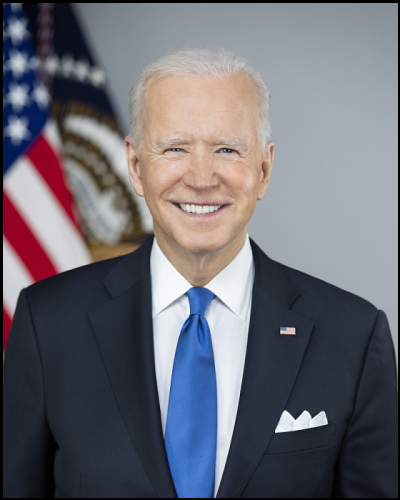 U.S. President Joe Biden's official portrait, 2021
U.S. President Joe Biden's official portrait, 2021
 Joe Biden at age 10 (1953)
Joe Biden at age 10 (1953)
 Joe Biden at the White House in 1987
Joe Biden at the White House in 1987
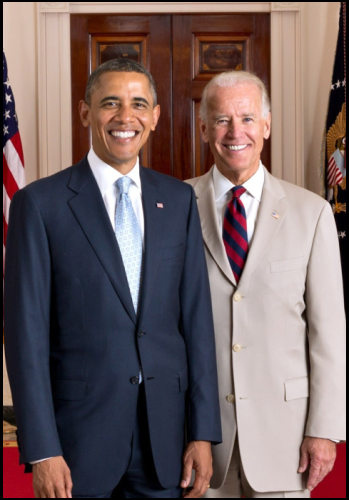 Joe Biden and Barack Obama, July 2012
Joe Biden and Barack Obama, July 2012